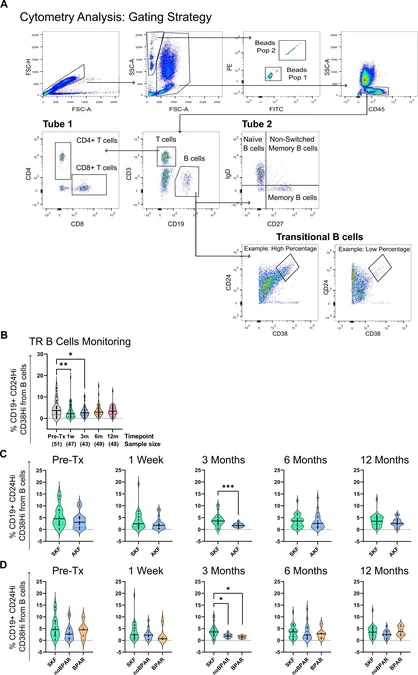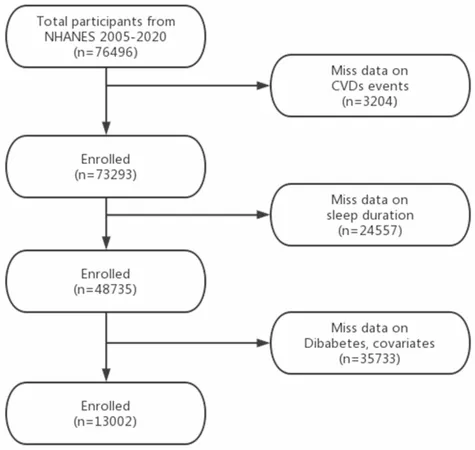
Revolutionary Immune Cell Analysis Set to Transform Kidney Transplant Monitoring
2024-09-27
Introduction
In a breakthrough that could change the lives of kidney transplant patients, researchers have honed in on immune cell analysis as a game-changing method to assess rejection risks in kidney transplants. Currently, kidney transplantation is hailed as the most effective treatment for end-stage chronic kidney disease, dramatically improving both survival rates and quality of life. However, the methods for monitoring transplant patients and their organ tolerance have faced significant challenges.
Challenges in Traditional Monitoring Practices
Traditionally, clinicians have relied on a handful of biomarkers which, while somewhat reliable, lack the precision needed for effective patient management. Most often, kidney biopsies are required for a conclusive diagnosis, but this invasive procedure only uncovers kidney damage at a stage that's already critical, leaving patients at risk during key recovery periods.
Research Findings from REMAR
Addressing these pressing issues, a pivotal study recently published in Frontiers in Immunology has explored the role of regulatory B cells in monitoring kidney transplant patients. Conducted by the Research in Kidney Affecting Diseases Group (REMAR) at IGTP and Germans Trias Hospital, the research followed around fifty patients during their first year post-transplantation.
Through careful longitudinal observation, the team discovered a specific cellular pattern evident three months after the transplant. Patients exhibiting higher levels of transitional B cells—key players in the immune response—showed a significantly lower risk of experiencing renal dysfunction or rejection, whereas those with diminished levels faced a more uncertain prognosis.
Personalized Patient Care
This groundbreaking identification of a new cellular signature presents an exciting opportunity for personalized patient care. For low-risk patients, it may be possible to decrease immunosuppressive treatments, thus reducing their vulnerability to infections. Conversely, high-risk individuals could be provided with enhanced monitoring and proactive strategies to avert transplant dysfunction.
Genetic Correlations
Beyond cellular analysis, the researchers also investigated various genes linked to regulatory B cells, further establishing their connection to kidney function. These genes could serve as vital additional indicators of damage risks, providing a more holistic view of transplant health.
Expert Insights
Sergio Garcia Garcia, a lead researcher from the REMAR team, underscores the critical nature of studying the immune system in relation to kidney transplants. He states, “Our findings align with observations in other research centers, reinforcing the need for continued investigation into B cells and other immune elements.” He also highlights the potential implications these markers have on reshaping post-transplant patient monitoring practices.
Conclusion
As science pushes the boundaries of medical understanding, this innovative research not only paves the way for enhanced transplant outcomes but also ignites hope for patients seeking a better quality of life post-surgery. The implications of this study extend beyond just kidney health, hinting at a future where personalized medicine could reshape transplant protocols and patient care on a global scale.
Stay tuned for more groundbreaking discoveries as researchers continue to delve into the complexities of the immune system and organ transplantation!




 Brasil (PT)
Brasil (PT)
 Canada (EN)
Canada (EN)
 Chile (ES)
Chile (ES)
 España (ES)
España (ES)
 France (FR)
France (FR)
 Hong Kong (EN)
Hong Kong (EN)
 Italia (IT)
Italia (IT)
 日本 (JA)
日本 (JA)
 Magyarország (HU)
Magyarország (HU)
 Norge (NO)
Norge (NO)
 Polska (PL)
Polska (PL)
 Schweiz (DE)
Schweiz (DE)
 Singapore (EN)
Singapore (EN)
 Sverige (SV)
Sverige (SV)
 Suomi (FI)
Suomi (FI)
 Türkiye (TR)
Türkiye (TR)